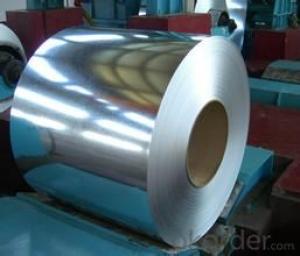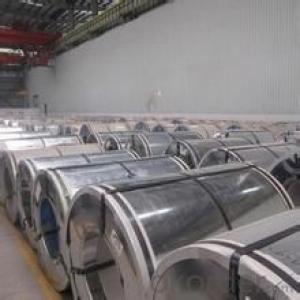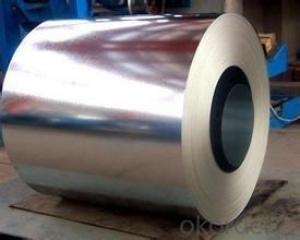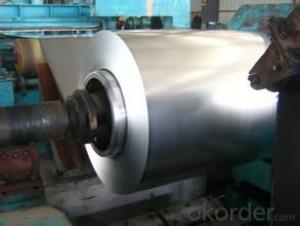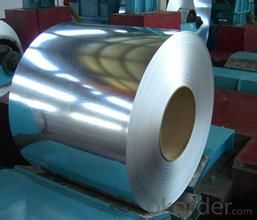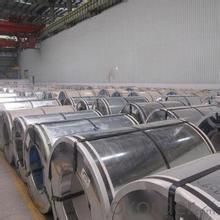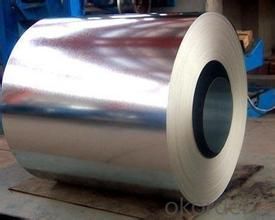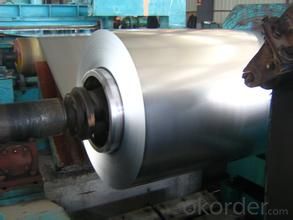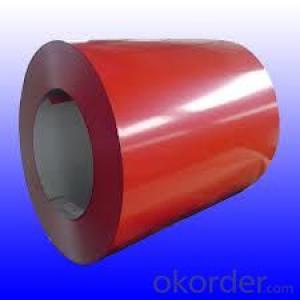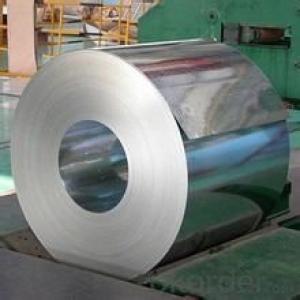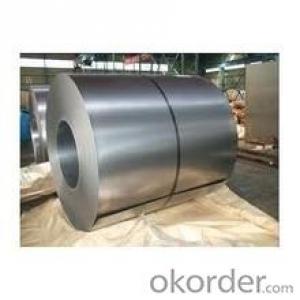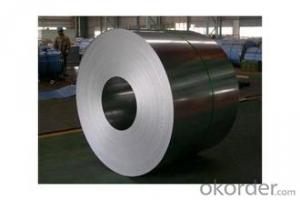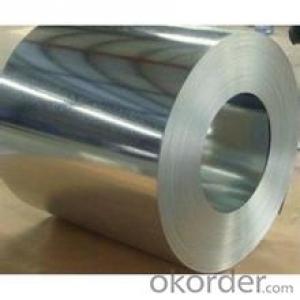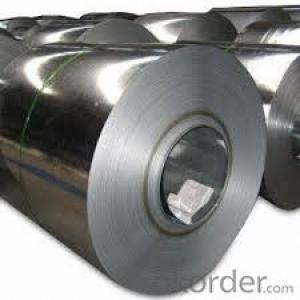good hot-dip galvanized/ auzinc steel in China
- Loading Port:
- China main port
- Payment Terms:
- TT OR LC
- Min Order Qty:
- 30 m.t.
- Supply Capability:
- 5000000 m.t./month
OKorder Service Pledge
OKorder Financial Service
You Might Also Like
Hot-dip aluzinc steel sheet is substrated on cold rolled steel (CRC) in various strength and specification. Coating composition is 55% aluminum in weight ratio, 43.4% zinc, and 1.5% silicon, with excellent corrosion and heat resistance performance.
Description:
1.Mateials:SGCC,DX51D / DX52D /S250,280GD
2.Size:width:600-1250mm(900mm,1215mm,1250mm,1000mm the most common)
thickness:0.15-2.0mm
length:1000-6000mm,as your require
3.Zinc coating :60-180g( as required)
4.Coil id:508mm
5.Coil weight: 3-5MT(as required)
6. Surface:regular/mini/zero spangle, chromated, skin pass, dry etc.
Applications of our Galvalume Coil:
Galvalume Coil widely used for roofing products, It is also the ideal base material for Prepainted Steel Coil.
1. roofing
2. gutters
3. unexposed automotive parts
4. appliances
5. furniture
6. outdoor cabinetry
Production of cold formed corrugated sheets and profiles for roofing, cladding, decking, tiles, sandwich walls, rainwater protective systems, air conditioning duct as well as electrical appliances and engineering.
- Q: What are the different types of steel processing techniques for coils?
- There are several types of steel processing techniques for coils, including hot rolling, cold rolling, annealing, pickling, and galvanizing.
- Q: 2 refridgerator of similar model and same brand..one is stainless steel...the other is clear steel (cheaper)..so wat's the difference between the two?
- In okorder /... The appliances that are not made of stainless steel are made of a mild steel which is then finished with a durable enameled finish, in colors even. Stainless steel appliances look very nice in the showroom, but it is no fun trying to keep them fingerprint and handprint free. If you have ever owned a toaster that was made from stainless steel then you know how much fun it would be to have to keep a whole refrigerator fingerprint free, The oils transferred from the skin leave very distinct smears on stainless surfaces.
- Q: it has 2 be 20 inches overall, and 2and1/2 inches wide and .25 or more inches thick... im thinking truck steel but im not sure thx
- Well okorder /
- Q: What are the different methods of oiling steel coils?
- There are several different methods of oiling steel coils, each with its own unique advantages and applications. Some of the common methods include: 1. Immersion or bath oiling: This method involves submerging the steel coils into a bath of oil. The coils are typically passed through a series of rollers to ensure even coating and complete coverage. Bath oiling is a cost-effective and efficient method for large-scale production, as it can oil multiple coils simultaneously. This method is commonly used for hot-rolled coils. 2. Roll-on oiling: As the name suggests, roll-on oiling involves applying oil to the surface of steel coils using a set of rotating rollers. This method ensures uniform oil distribution and is suitable for both cold-rolled and hot-rolled coils. Roll-on oiling is often preferred when precise control over the amount of oil applied is required. 3. Spray oiling: In spray oiling, a fine mist or spray of oil is applied to the coils using specialized nozzles or sprayers. This method allows for targeted application, making it suitable for specific areas or sections of the steel coils. Spray oiling is commonly used for precision or specialty coils where controlling the amount of oil is critical. 4. Electrostatic oiling: Electrostatic oiling involves applying a charged mist of oil particles to the steel coils. The coils are given an opposite charge, causing the oil particles to be attracted and adhere to the surface. This method ensures an even and controlled distribution of oil, minimizing waste and reducing environmental impact. Electrostatic oiling is often used for high-quality or high-precision applications. 5. Brush or roller oiling: This method involves manually applying oil to the coils using brushes or rollers. It is typically used for smaller-scale operations or when precision is required in specific areas. Brush or roller oiling allows for close control over the amount of oil applied. The choice of oiling method depends on various factors such as the type of steel, desired level of oil coverage, production volume, and cost considerations. Each method has its own advantages and limitations, and manufacturers often select the most suitable method based on their specific requirements and objectives.
- Q: Can steel coils be used in the food processing industry?
- No, steel coils are not typically used in the food processing industry due to the risk of contamination and potential health hazards. Food-grade materials such as stainless steel are preferred for their hygienic properties and ability to withstand high sanitary standards.
- Q: Can steel coils be cut or trimmed after delivery?
- Yes, steel coils can be cut or trimmed after delivery. This process is commonly known as slitting, where the steel coil is passed through a set of circular blades to create narrower strips of steel. Trimming can also be conducted to remove any unwanted edges or imperfections. Both cutting and trimming are common practices in the steel industry to meet specific size and shape requirements for various applications.
- Q: How do steel coils contribute to sustainability in construction?
- Several factors contribute to the sustainability of construction when it comes to steel coils. To begin with, steel is an incredibly durable material with a long lifespan. Its use in the construction of structural components like beams, columns, and frames ensures the stability and strength of buildings. This durability translates to reduced maintenance requirements and a longer service life for structures. As a result, the need for frequent repairs or replacements is diminished, leading to a decrease in the overall environmental impact associated with material waste and energy consumption. Moreover, steel is highly recyclable. Steel coils can be easily recycled and reused in new construction projects. The recycling process for steel has a significantly lower environmental impact compared to the production of new steel. By incorporating recycled steel coils into construction projects, the demand for new steel production is reduced, resulting in lower greenhouse gas emissions and a smaller carbon footprint. This approach helps conserve natural resources, reduces the extraction of raw materials, and minimizes energy consumption in steel production. Additionally, steel is an ideal material for off-site prefabrication. This means that steel coils can be manufactured in controlled environments in factories, minimizing construction waste and improving construction efficiency. Prefabricating steel coils reduces on-site material waste and decreases the need for transportation of construction materials. Consequently, this reduces air pollution and energy consumption during construction. Furthermore, steel's high strength-to-weight ratio allows for lighter and more efficient structures. By using steel coils, construction projects can optimize material usage, resulting in reduced material consumption and lessening the overall environmental impact. The lightweight nature of steel coils also facilitates easier transportation, reducing fuel consumption and associated emissions during delivery. In summary, steel coils contribute to the sustainability of construction through their durability, recyclability, prefabrication capabilities, and high strength-to-weight ratio. By utilizing steel coils, construction projects can minimize waste, conserve resources, reduce energy consumption, and decrease the environmental impact, ultimately promoting a more sustainable built environment.
- Q: hello, I am trying to figure out what wok to get and came across a website that offers many woks out of different materials. what is the best, or considered original (traditional)? I have a couple of cast iron pots and pans - too heavy, so I am assuming it will take some time for a cast iron wok to heat up. what about carbon steel and stainless steel? Thanks
- Best Wok To Buy
- Q: Does anyone know if there is any info on Steel Manufacturing techniques, utilyzing electro/mechanical methods in order to create carbon nanotubes from the %C already inherant in the steel. In other words just modifying the Geometry of the Carbon the already makes up some of the steel.
- I don't think that would work. First off, there's not enough carbon in steel - even very high carbon steels are only about 2% carbon. Second, the iron atoms in steel form a crystal lattice, in the shape of a cube, with another iron atom in the middle of the cube. Each cube is about 0.3 nm per side. Carbon atoms work their way into the crystals and displace the iron atoms. But a carbon nanotube is around 1 nanometer in diameter - that's 3 times as big as the iron lattice! So a nanotube wouldn't fit. One thing you might do, however, is make a composite - mix the materials together on a scale a little bigger than the atomic scale that the iron and carbon mix to make steel. Just like a carbon fiber bicycle frame or ski pole is strands of carbon (much bigger and not as strong as nanotubes) held together with epoxy, you could hold nanotube strands together with metal. Not sure it would be good for armor, but if you can figure out a way to do it, I'm sure someone will come up with a use for it!
- Q: Can steel coils be coated with aluminum?
- Yes, steel coils can be coated with aluminum through a process called coil coating.
Send your message to us
good hot-dip galvanized/ auzinc steel in China
- Loading Port:
- China main port
- Payment Terms:
- TT OR LC
- Min Order Qty:
- 30 m.t.
- Supply Capability:
- 5000000 m.t./month
OKorder Service Pledge
OKorder Financial Service
Similar products
Hot products
Hot Searches
Related keywords
